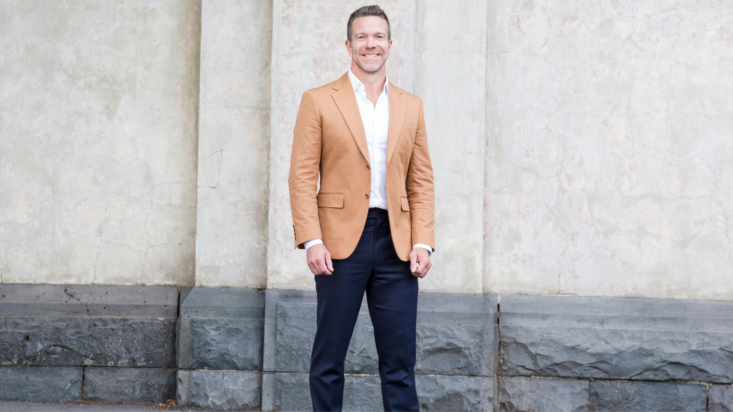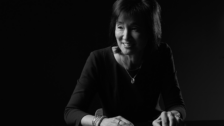Professionalism in advice is worth protecting: Andrew Hewison
Andrew Hewison carefully ponders a question about the Quality of Advice Review. As managing director of Melbourne-based advice firm Hewison Private Wealth and a financial adviser with more than 20 years’ experience, he knows only too well the brickbats that such inquiries have inflicted on the industry, with the Ripoll Inquiry (2009) and the Financial Services Royal Commission (2018) two notable examples.
Yet he feels strongly compelled to answer bluntly as to whether the review has potential negative consequences for the industry, arguing that some of its recommendations could turn back the clock, not just pre-Hayne Royal Commission but even before the 2012 Future of Financial Advice (FoFA) reforms.
“For our industry, FoFA was the big change agent, especially for independents. By getting rid of commissions, they fundamentally changed our industry. Commissions were a huge conflict of interest that prevented financial planning from achieving professional status. Certainly, no other profession gets paid by a third party.
“FoFA introduced the concept of best interest duty and I for one think it would be a mistake to remove it as the review is proposing.
“I also worry about the review as it seems to be recommending that large financial institutions should get back into the advice business after staff do a six-week course. Everyone will say it’s limited what they can advise, but I can see this becoming a very slippery path. Let me perfectly clear about this. The issue isn’t large financial institutions offering advice, but if they do, I question how they can make it profitable without pushing their products again.
“So, my concern is that having worked so hard to draw a pivotable line in the sand and raising the bar for our industry and profession, such as fee for service, best interest duty, and educational standards, we are relaxing too many of the standards and that will devalue our profession.”
Professionalism. It’s an issue that’s clearly dear to his heart. When his father John – he remains a non-executive executive – established Hewison in 1985, it was on a fee-for-service basis. Commissions were never part of the firm’s DNA. It’s a formula that’s worked well with the firm approaching its 40th anniversary with 53 staff numbers and FUM of $1.8 billion spread across 1,140 clients.
When Andrew joined the firm after graduating from Deakin University in 2002, he came armed with a bachelor of commerce and immediately started doing a Certificate of Financial Planning. But before finishing his certificate, he succumbed to the lure of overseas travel and like so many young Australians headed for London.
“The UK taught me two things above all else – resilience and persistence. I was initially offered a role in the finance industry but was only being paid £7.5 ($A13.64) an hour. It felt like I was being taken advantage of, so I went labouring and earned more.
“Labouring was a means to an end while I looked for other ‘white collar’ opportunities. Spent six weeks working on a dilapidated building site. One Saturday morning, it began snowing and I questioned how much longer I could last. Perhaps heading back to Oz was an option? Thankfully, the persistence paid off and the following week I got a job in finance earning £11 ($A20.04) an hour. Aside from resilience and persistence, London also taught me to value hard work.”
Returning to Australia in February 2005, he continued to study for his Diploma – and enjoy the boom years up to Lehman Brothers imploding in September 2008, officially heralding in the GFC. “It was horrific. But I believe our approach, based on having a strategic asset allocation that’s tailor-made for each client, served us well during the crisis.
“That’s not to say we didn’t have tough times, especially in the early months. Clients were fully invested so we spent 18 months reassuring them, getting them to sit tight, and telling them that the markets would turn – which, as we know, they did. We also demonstrated a capacity to take advantage of the market downturn to make some strategic investments for clients.
“If I could make an educated guess, our clients weren’t back in front until 2011, probably 2012. There were a lot of tough conversations over that time with clients having to reconsider their spending and investment habits.
“What saved them in the short term was having portfolios where there was reliability and predictability of income. Also, the fact we invest directly gave us flexibility. As a firm we have never been big fans on investing in fund managers that might know markets, but they don’t know our clients.
“In my opinion advisers come to the fore in tough markets. Everyone can mouth the Warren Buffet mantra of ‘being greedy when others are fearful and fearful when others are greedy’, but human nature makes it hard to swim against the tide. That’s our job – helping them to walk back off the plank.”
Looking to the future, he doesn’t see any quick solutions to get financial advice to the vast majority. “The simple fact is quality, personalised advice is costly. Advisers are well-educated professionals and rightly expect to be compensated as professionals. As a consequence, most people cannot afford our services so we need to find a way people can access the advice they need at a cost they can afford. There is no simple answer to this.
“I suspect the long-term solution is technology. Via AI, I think advice will be delivered at a cost the average person can afford. We are not there yet, but I think it will come. And for those who can afford and want personal advice, there will be the independent advisers. AI will potentially change the industry, but it won’t change the human element and that’s people wanting a trusted relationship with a professional and being prepared to pay for it.”










